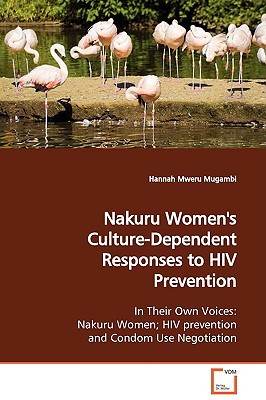
- We will send in 10–14 business days.
- Author: Hannah Mweru Mugambi
- Publisher: VDM Verlag
- ISBN-10: 3639135415
- ISBN-13: 9783639135411
- Format: 15.2 x 22.9 x 1.1 cm, softcover
- Language: English
- SAVE -10% with code: EXTRA
Nakuru Women's Culture-Dependent Responses to HIV Prevention (e-book) (used book) | bookbook.eu
Reviews
Description
An in depth interview study that seeks to understand how low income, HIV positive women of Nakuru, Kenya, perceive, and practice HIV/AIDS prevention, and male condom use negotiation. Focusing on the sample population's cultural, geographic, economic, and political status, within the local and global contexts of HIV/AIDS control policy, and population politics, the study identifies multiple culture-dependent strategies that HIV positive women of Nakuru adopt, as a form of personal and social agency in response to these challenges. A set of feminist approaches to the intersection of gender, race, sexuality, and globalization are applied. Critical Race Feminism and African Feminist Thought help to locate, understand and position Nakuru women's lives and limitations. Through their narratives, complex heterosexual marriages and relationship types are identified. A slum life of poverty, hunger, lack of support from government, kinship, and international organizations, inaccessibility to reproductive health services, and gender powerlessness, become major factors constraining successful HIV/AIDS prevention practices.
EXTRA 10 % discount with code: EXTRA
The promotion ends in 16d.21:51:12
The discount code is valid when purchasing from 10 €. Discounts do not stack.
- Author: Hannah Mweru Mugambi
- Publisher: VDM Verlag
- ISBN-10: 3639135415
- ISBN-13: 9783639135411
- Format: 15.2 x 22.9 x 1.1 cm, softcover
- Language: English English
An in depth interview study that seeks to understand how low income, HIV positive women of Nakuru, Kenya, perceive, and practice HIV/AIDS prevention, and male condom use negotiation. Focusing on the sample population's cultural, geographic, economic, and political status, within the local and global contexts of HIV/AIDS control policy, and population politics, the study identifies multiple culture-dependent strategies that HIV positive women of Nakuru adopt, as a form of personal and social agency in response to these challenges. A set of feminist approaches to the intersection of gender, race, sexuality, and globalization are applied. Critical Race Feminism and African Feminist Thought help to locate, understand and position Nakuru women's lives and limitations. Through their narratives, complex heterosexual marriages and relationship types are identified. A slum life of poverty, hunger, lack of support from government, kinship, and international organizations, inaccessibility to reproductive health services, and gender powerlessness, become major factors constraining successful HIV/AIDS prevention practices.


Reviews